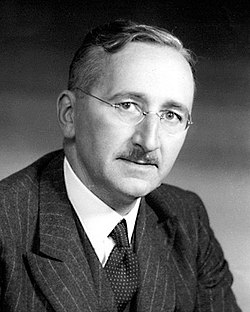Friedrich August von Hayek Quote
The credit which the apparent conformity with recognized scientific standards can gain for seemingly simple but false theories may, as the present instance shows, have grave consequences.
Friedrich August von Hayek
The credit which the apparent conformity with recognized scientific standards can gain for seemingly simple but false theories may, as the present instance shows, have grave consequences.
Tags:
simple, conformity
Related Quotes
Certainly we can say that the pace of modern life, increased and supported by our technology in general and our personal electronics in particular, has resulted in a short attention span and an addict...
Arthur Rosenfeld
Tags:
being, complicated, critical thinking, daoism, emotion, feeling, hectic, life, meditation, modern life
It is as difficult for most poor people to truly believe that they could someday escape poverty as it is for most wealthy people to truly believe that their wealth could someday escape them.
Mokokoma Mokhonoana
Tags:
a breeze, a cinch, a piece of cake, a snap, arduous, arduousness, arrogance, arrogant, back breaking, bankrupt
About Friedrich August von Hayek
Friedrich August von Hayek (8 May 1899 – 23 March 1992) was an Austrian-born British academic and philosopher. He is known for his contributions to political economy, political philosophy and intellectual history. Hayek shared the 1974 Nobel Memorial Prize in Economic Sciences with Gunnar Myrdal for work on money and economic fluctuations, and the interdependence of economic, social and institutional phenomena. His account of how prices communicate information is widely regarded as an important contribution to economics that led to him receiving the prize. He was a major contributor to the Austrian school of economics.
During his teenage years, Hayek fought in World War I. He later said this experience, coupled with his desire to help avoid the mistakes that led to the war, drew him into economics. He earned doctoral degrees in law in 1921 and political studies in 1923 from the University of Vienna. He subsequently lived and worked in Austria, Great Britain, the United States and Germany. He became a British national in 1938. He studied and taught at the London School of Economics and later at the University of Chicago, before returning to Europe late in life to teach at the Universities of Salzburg and Freiburg.
Hayek had considerable influence on a variety of political and economic movements of the 20th century, and his ideas continue to influence thinkers from a variety of political and economic backgrounds today. Although sometimes described as a conservative, Hayek himself was uncomfortable with this label and preferred to be thought of as a classical liberal or libertarian. His most popular work, The Road to Serfdom (1944), has been republished many times over the eight decades since its original publication.
Hayek was appointed a Member of the Order of the Companions of Honour in 1984 for his academic contributions to economics. He was the first recipient of the Hanns Martin Schleyer Prize in 1984. He also received the Presidential Medal of Freedom in 1991 from President George H. W. Bush. In 2011, his article "The Use of Knowledge in Society" was selected as one of the top 20 articles published in the American Economic Review during its first 100 years.
During his teenage years, Hayek fought in World War I. He later said this experience, coupled with his desire to help avoid the mistakes that led to the war, drew him into economics. He earned doctoral degrees in law in 1921 and political studies in 1923 from the University of Vienna. He subsequently lived and worked in Austria, Great Britain, the United States and Germany. He became a British national in 1938. He studied and taught at the London School of Economics and later at the University of Chicago, before returning to Europe late in life to teach at the Universities of Salzburg and Freiburg.
Hayek had considerable influence on a variety of political and economic movements of the 20th century, and his ideas continue to influence thinkers from a variety of political and economic backgrounds today. Although sometimes described as a conservative, Hayek himself was uncomfortable with this label and preferred to be thought of as a classical liberal or libertarian. His most popular work, The Road to Serfdom (1944), has been republished many times over the eight decades since its original publication.
Hayek was appointed a Member of the Order of the Companions of Honour in 1984 for his academic contributions to economics. He was the first recipient of the Hanns Martin Schleyer Prize in 1984. He also received the Presidential Medal of Freedom in 1991 from President George H. W. Bush. In 2011, his article "The Use of Knowledge in Society" was selected as one of the top 20 articles published in the American Economic Review during its first 100 years.
